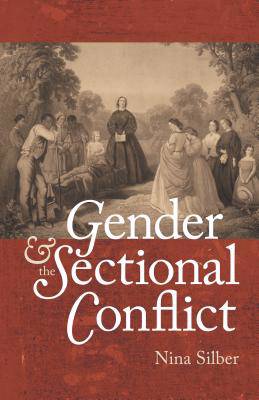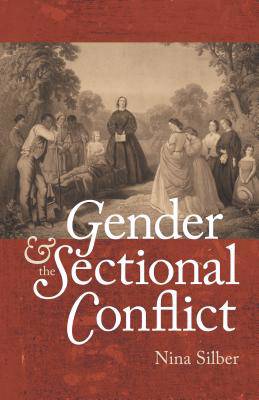
- Retrait gratuit dans votre magasin Club
- 7.000.000 titres dans notre catalogue
- Payer en toute sécurité
- Toujours un magasin près de chez vous
- Retrait gratuit dans votre magasin Club
- 7.000.0000 titres dans notre catalogue
- Payer en toute sécurité
- Toujours un magasin près de chez vous
Description
In an insightful exploration of gender relations during the Civil War, Nina Silber compares broad ideological constructions of masculinity and femininity among Northerners and Southerners. She argues that attitudes about gender shaped the experiences of the Civil War's participants, including how soldiers and their female kin thought about their "causes" and obligations in wartime. Despite important similarities, says Silber, differing gender ideologies shaped the way each side viewed, participated in, and remembered the war.
Silber finds that rhetoric on both sides connected soldiers' reasons for fighting to the women left at home. Consequently, although in different ways, women on both sides took up new roles to advance the wartime agenda. At the same time, both Northern and Southern women were accused of waning patriotism as the war dragged on, but their responses to such charges differed. Finally, noting that our postwar memories are often dominated by images of Southern belles, Silber considers why Northern women, despite their heroic contributions to the Union cause, have faded from Civil War memory.
Silber's investigation offers a new understanding of how Unionists and Confederates perceived their reasons for fighting, of the new attitudes and experiences that women -- black and white -- on both sides took up, and of the very different ways that Northern and Southern women were remembered after the war ended.
Silber finds that rhetoric on both sides connected soldiers' reasons for fighting to the women left at home. Consequently, although in different ways, women on both sides took up new roles to advance the wartime agenda. At the same time, both Northern and Southern women were accused of waning patriotism as the war dragged on, but their responses to such charges differed. Finally, noting that our postwar memories are often dominated by images of Southern belles, Silber considers why Northern women, despite their heroic contributions to the Union cause, have faded from Civil War memory.
Silber's investigation offers a new understanding of how Unionists and Confederates perceived their reasons for fighting, of the new attitudes and experiences that women -- black and white -- on both sides took up, and of the very different ways that Northern and Southern women were remembered after the war ended.
Spécifications
Parties prenantes
- Auteur(s) :
- Editeur:
Contenu
- Nombre de pages :
- 144
- Langue:
- Anglais
- Collection :
Caractéristiques
- EAN:
- 9781469627076
- Date de parution :
- 01-06-15
- Format:
- Livre broché
- Format numérique:
- Trade paperback (VS)
- Dimensions :
- 140 mm x 216 mm
- Poids :
- 185 g

Les avis
Nous publions uniquement les avis qui respectent les conditions requises. Consultez nos conditions pour les avis.






